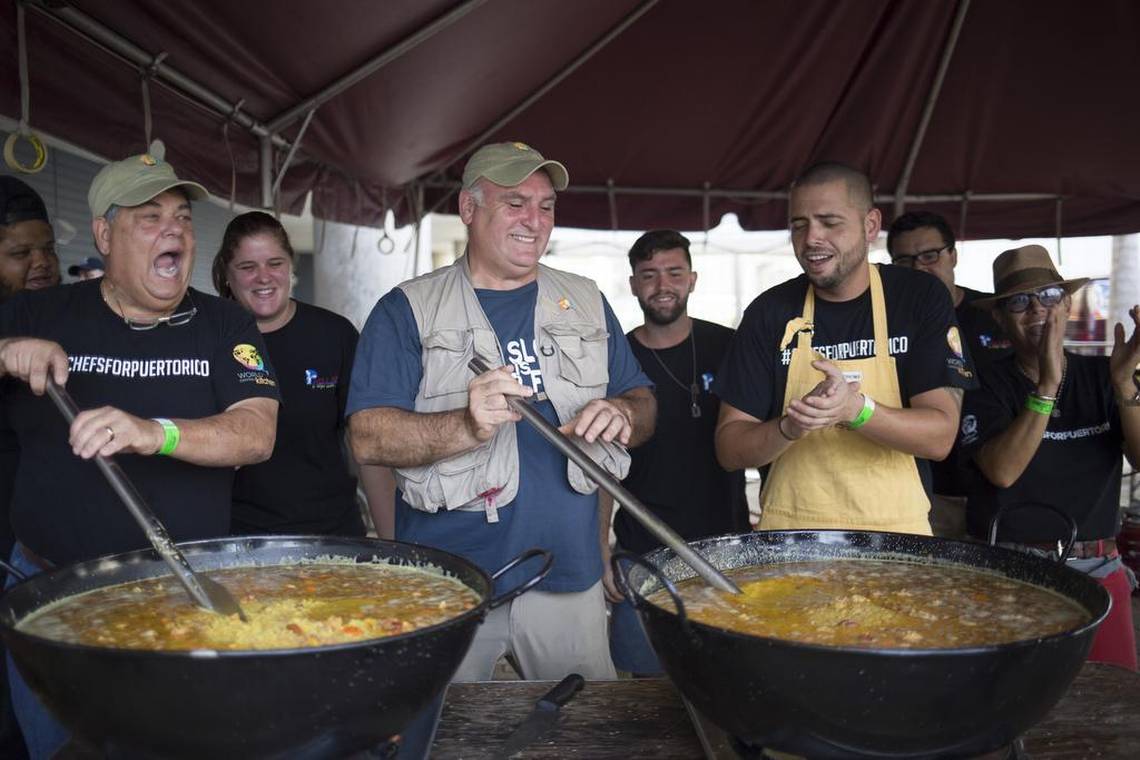When disaster strikes — a hurricane tearing through buildings on a port town, or a President holding thousands of people that cross a border in inhuman conditions — José Andrés, and his team of committed chefs, are some of the first people to arrive.
To date, World Central Kitchen (WCK) has served more than 8 million meals, through 23 deployments and over 44,000 volunteer shifts.
This has included stints in the Bahamas, where they provided half a million meals after the recent Hurricane Dorian. In California, after wildfires ravaged the region, where they delivered 400,000 meals. And in Colombia, where they’ve delivered 570,000 meals to refugees from Venezuelan.
At the centre of it all is Andrés — a man who promises that “wherever there is a fight so that hungry people may eat, we will be there.”
We @WCKitchen are 80 miles from #HurricaneDorian eye & feeling this!! Imagine what the people of Abaco+Grand Bahamas will experience! Bahamas @opmthebahamas Goverment will need major help! @ClintonGlobal @RedCross @TeamRubicon …Florida should also get ready for major winds! pic.twitter.com/lIa9ghhUdk
— José Andrés (@chefjoseandres) September 1, 2019
Route to World Central Kitchen
WCK was born in the wake of the 2010 earthquake that devastated Haiti, killing an estimated 300,000 people. Andrés was part of the team that went out and installed clean cooking stoves in the region.
He then became a culinary ambassador for the UN’s Global Alliance for Clean Cookstoves Foundation, before deciding to establish a sort of “chefs without borders” programme — using food to improve education, health and social enterprise programmes around the world.
The outcome, aiming at empowering communities in need around the world, was WCK. While strong elements of this social empowerment drive still exist in WCK’s work — it runs a training programme for smallholder farmers in Puerto Rico, and a top-end commercial training kitchen in Haiti — the focused shifted for good when Hurricane Matthew hit Haiti in October 2016 and killed 900 people.
WCK moved directly into the area, setting up a mobile kitchen and distributing more than 15,000 meals.
These disaster relief efforts were called upon again in the aftermath of Hurricane Maria, which struck Puerto Rico in September 2017. That time, WCK ramped up and served 3.7m meals to people in every section of the island. Fast Company described the action as the “largest food-providing operation specifically targeting Maria survivors.”
WCK has since operated in places including Mozambique, Houston and Guatemala.

Credit: Charlotte Observer
Local food philosophy
In an interview with Fast Company, Andrés explains that cooking for masses doesn’t have to be canned meats — it can be “big ham and cheese sandwiches with lots of calories and a piece of fresh fruit.”
Crucially, he says meals are dependent on local ingredients, so when providing disaster relief in Indonesia they made Indonesian food, and food from Mozambique in Mozambique. Andrés says that while this is related to sustainability and convenience, it’s also about providing comfort and recognisable food to people in need of a moment of calm.
Andrés adds that just by starting with a very simple list of partners of who is taking care of every problem, the humanitarian response can be “unbelievable.” “With no one taking ownership, the poor people of the world are the ones that suffer the most.”
The cooking operations (meals cost between $2 and $4) are funded by private donors, foundations, businesses and individuals. WCK is currently seeking to raise a total of $50m for its ambitious, global disaster response efforts.
“We learned that a small NGO can change the world through the power of food,” Andres writes on the website.
“From serving children in the shelters on our border with Mexico to making deliveries by lamplight to those keeping watch over beaches in Indonesia, our fight to feed the hungry has taken us to more places than we ever expected.”
He continues: “I hope you’ll dream with us as we envision a world where there is always a warm meal, an encouraging word, and a helping hand in hard times.”


